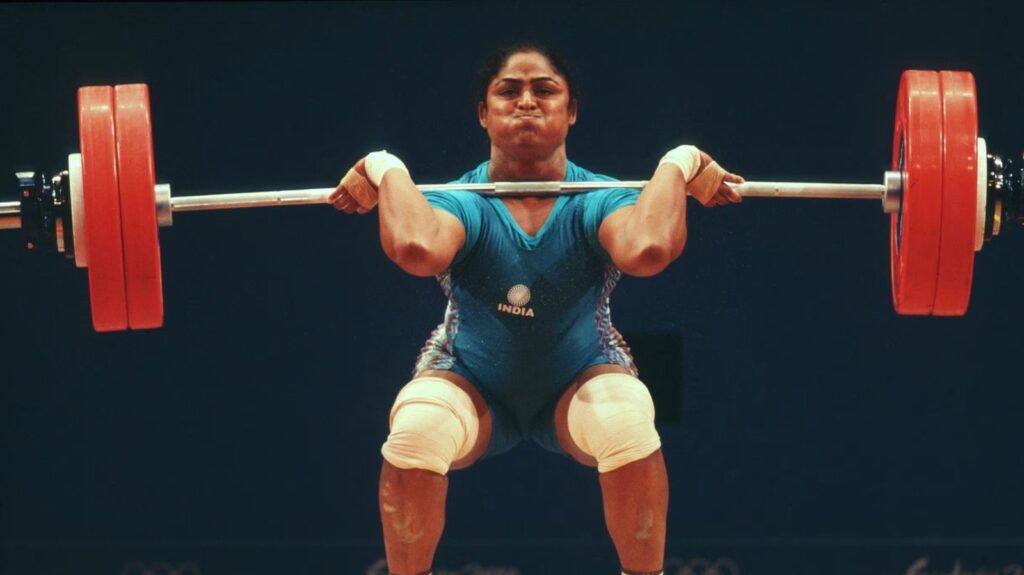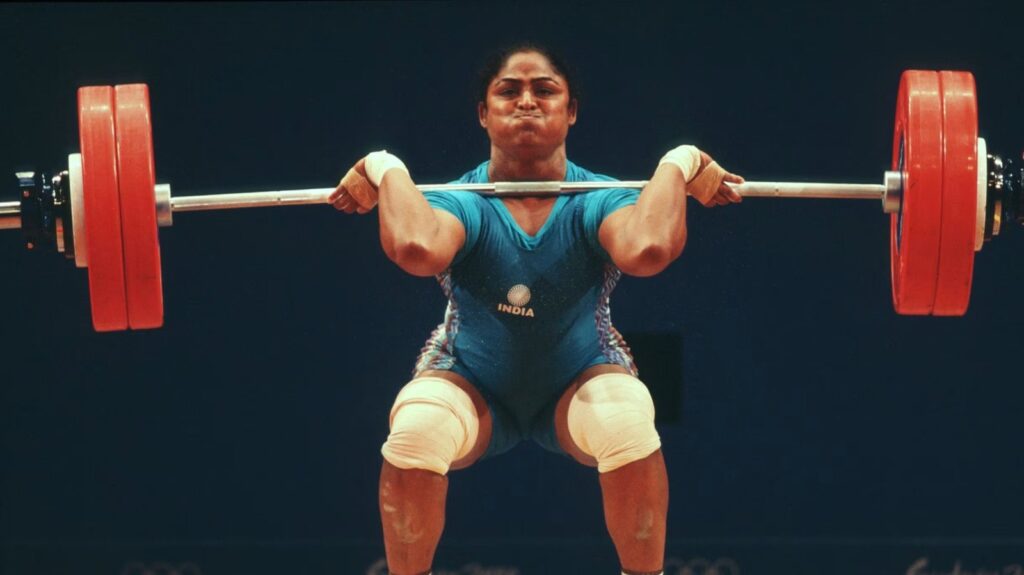
Karnam Malleswari winning a historic bronze medal in weightlifting for India at the Sydney Olympics in 2000 will always be a first. Unlike today, when there will be gender equality at the Paris Olympics, an Indian woman storming the stage was least expected 24 years ago.
For all those who had followed the illustrious exploits of Malleswari, popularly known as ‘Malli’ to friends, she was a very fierce competitor. When she took to the sport in Andhra Pradesh as a 12 year old, some mocked her. But then, her mother was a pillar of support and strength for the daughter. She dreamed big, even though there were sneers from men back home.
‘Malli’ never minded it. When she came to New Delhi in the early 1990s, women and weightlifting hardly got any mileage on the sports pages. Yet, each time Malleswari performed at the Asian and World Championships to win an assortment of medals, one sports foundation stood by her. She had Kunjarani Devi for company, another strong weightlifter from the North East. Those weightlifters never had a proper support system, which someone like Mirabai Chanu enjoys today.
Almost three decades ago, when nutrition supplements were unheard of, one foundation run by the Hindujas promoted and encouraged the weightlifters. Malleswari and many more gained from it, as these supplements were so important. Weightlifting is, in many ways, an explosive sport. How much the lifter can push his or her body is defined by effort and willingness to bear pain.
Malleswari was feared in Asia, as she had made winning a habit. Yet, when she was to leave for Sydney in September 2000, there was plenty of negative news. There was no social media those days, yet one well-known weekly magazine had written, in poor taste, that she ‘loved oily food and was gorging on it’.
Norman Pritchard intrigue will always be there, if he won the ‘first’ Olympic medal for India—the story of the ‘Mystery Man’, #NormanPritchard.
Olympics, IFA, Hollywood and more!@RohanDC98 ✍️@iocmedia @Olympics @Paris2024 https://t.co/DCExIvF3FI
— RevSportz Global (@RevSportzGlobal) July 19, 2024
Not many would know that Malleswari, a very polite lady, was livid when she read that. She wanted to give a fitting reply to that article, which had tarnished her image. She realised that the only way was to perform on the platform where the weights are loaded. As Malleswari aggregated 240kg and a bronze was clinched, there was celebration.
It was muted in many ways, because a huge section of the media had decided to skip the weightlifting event that day. Malleswari was not projected as a medal hope, for she had been described as “overweight” and not in good form. That she proved everyone wrong was the best answer she could give her critics. She and her coach, Leonid Taranenko, had prepared very hard, going through the drills very meticulously.
Just as Mirabai, the present-day medal hope, trusts Vijay Sharma, her coach, blindly, Malleswari believed in whatever Taranenko put her through. He knew his sport and how ‘Malli’ would peak on the big day – September 19, 2000. This writer was fortunate to be present in Sydney and watch history being made.
One Indian Weightlifting Federation official had pleaded before Malleswari went to compete that day, saying he would place his turban at her feet if she won an Olympic medal. His name does not need to be mentioned here, out of respect for the departed, but there are still critics who will say Malleswari could even have gone on to win a gold medal if not for poor planning from the coaches.
All that is academic, for, even to win a bronze medal was a historic feat. Malleswari was subjected to multiple dope tests at the Athletes Village in Sydney before the Games. They knew she was a strong medal hope, even though many in India had not seen the potential in her.
After the medal win, Malleswari was indeed emotional. She cried, hugged her coach and the officials present. One man was missing, her pillar of strength and husband, Rajesh Tyagi. Full credit to the Indian Olympic Association (IOA), headed by Suresh Kalmadi, for they flew him out to Sydney.
Indian Olympic history will forever have a special mention of Leander Paes, the tennis superstar. His bronze medal win at the Atlanta Olympics in 1996 was path-breaking@kannandelhi writes@Olympics @Paris2024 @WeAreTeamIndia @Leander #Olympics https://t.co/fqTbUNdDCd
— RevSportz Global (@RevSportzGlobal) July 18, 2024
Those days, the Internet was nascent in India, but Malleswari “chatted” through a digital platform two days after her medal. She interacted with fans and also shared her agony at being written about negatively by a weekly magazine. Today, she is backing Mirabai to win a medal, again, in Paris. “Bahut mehnat kartee hai, Mira [Mira works very hard],” said Malleswari to RevSportz.
The strongwoman who became a path-breaker for India at the Sydney Olympics runs her weightlifting academy in Yamunanagar, Haryana. “I am already grooming talent and my academy kids have started winning medals at the Nationals and Commonwealth events,” she told this writer. “Please come to my academy.” But whether she’s there on in Delhi, she will be watching Mirabai with a former champion’s eye.
Also Read: How Leander Paes’ bronze medal win at Atlanta Olympics in 1996 was defining for Indian sports





